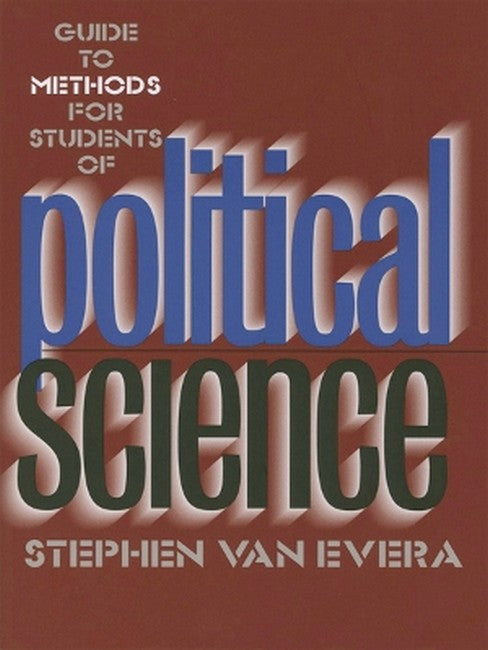Stephen Van Evera is Ford International Professor in the Political Science Department at MIT.
Request Academic Copy
Please copy the ISBN for submitting review copy form
Description
INTRODUCTION 1. HYPOTHESES, LAWS, AND THEORIES: A USER'S GUIDE What Is a Theory? What Is a Specific Explanation? What Is a Good Theory? How Can Theories Be Made? How Can Theories Be Tested? Strong vs. Weak Tests: Predictions and Tests Helpful Hints for Testing Theories How Can Specific Events Be Explained? Methodology Myths 2. WHAT ARE CASE STUDIES? HOW SHOULD THEY BE PERFORMED? Case Studies in Perspective Testing Theories with Case Studies Creating Theories with Case Studies Inferring Antecedent Conditions from Case Studies Testing Antecedent Conditions with Case Studies Explaining Cases Strong vs. Weak Tests: Predictions and Tests Interpreting Contradictory Results Case-Selection Criteria 3. WHAT IS A POLITICAL SCIENCE DISSERTATION? 4. HELPFUL HINTS ON WRITING A POLITICAL SCIENCE DISSERTATION Topic Selection Organization Your Dissertation Prospectus Your Introductory Chapter Your Concluding Chapter Study Design and Presentation Writing Style Vetting Your Abstract Dealing with your Dissertation Committee Dealing with Your Head, Your Family, and Your Friends How to Learn More about How to Write a Dissertation 5. THE DISSERTATION PROPOSAL 6. PROFESSIONAL ETHICS APPENDIX: HOW TO WRITE A PAPER FURTHER READING INDEX
"Stephen Van Evera's Guide to Methods for Students of Political Science makes an important contribution toward improving the use of case studies for theory development and testing in the social sciences. His trenchant and concise views on issues ranging from epistemology to specific research techniques manage to convey not only the methods but the ethos of research. This book is essential reading for social science students at all levels who aspire to conduct rigorous research."-Alexander L. George, Stanford University, and Andrew Bennett, Georgetown University "Stephen Van Evera has a keen awareness of the questions that arise in every phase of the political science research project-from initial conception to final presentation. Although others may not agree with all of his specific advice, all will appreciate his user-friendly introduction to what is sometimes seen as an abstract and difficult topic."-Timothy J. McKeown, University of North Carolina, Chapel Hill

